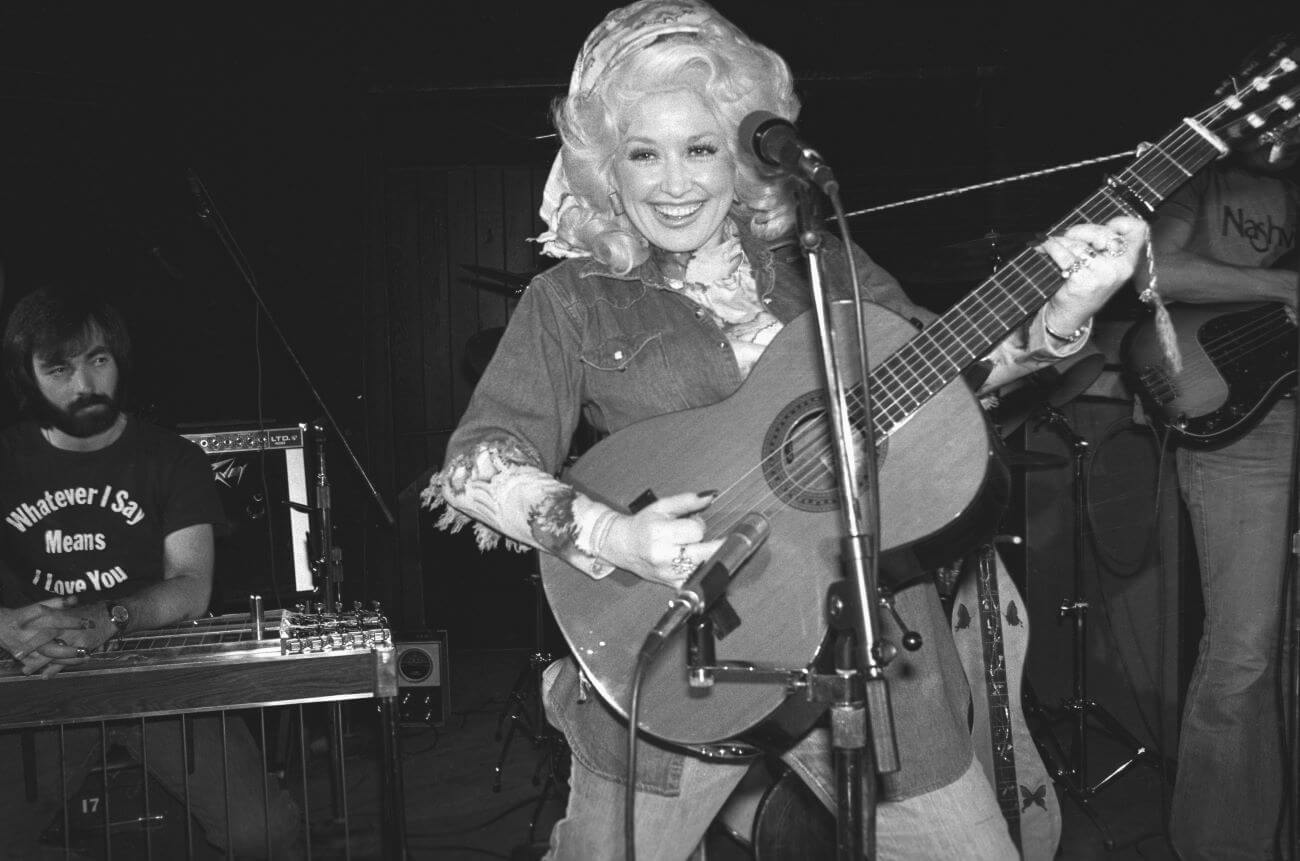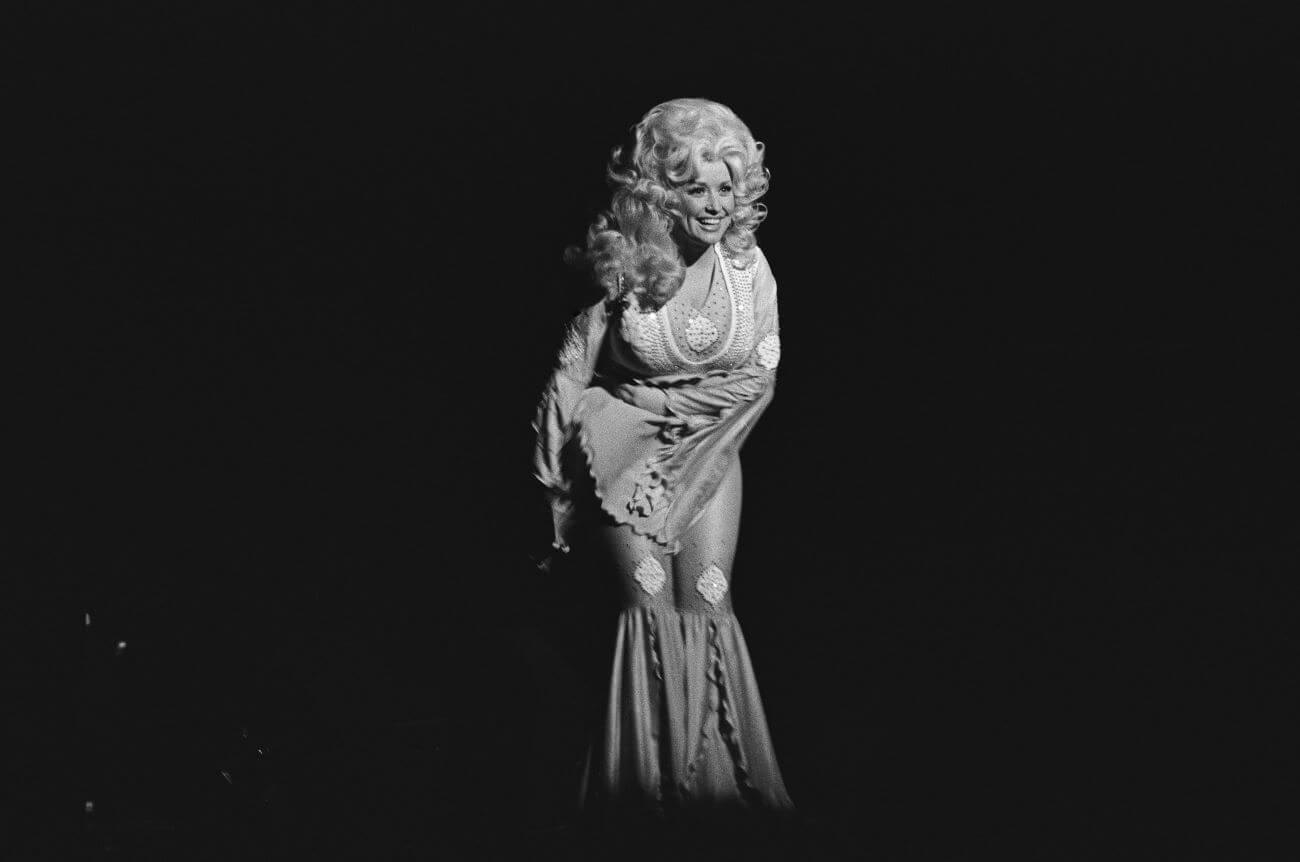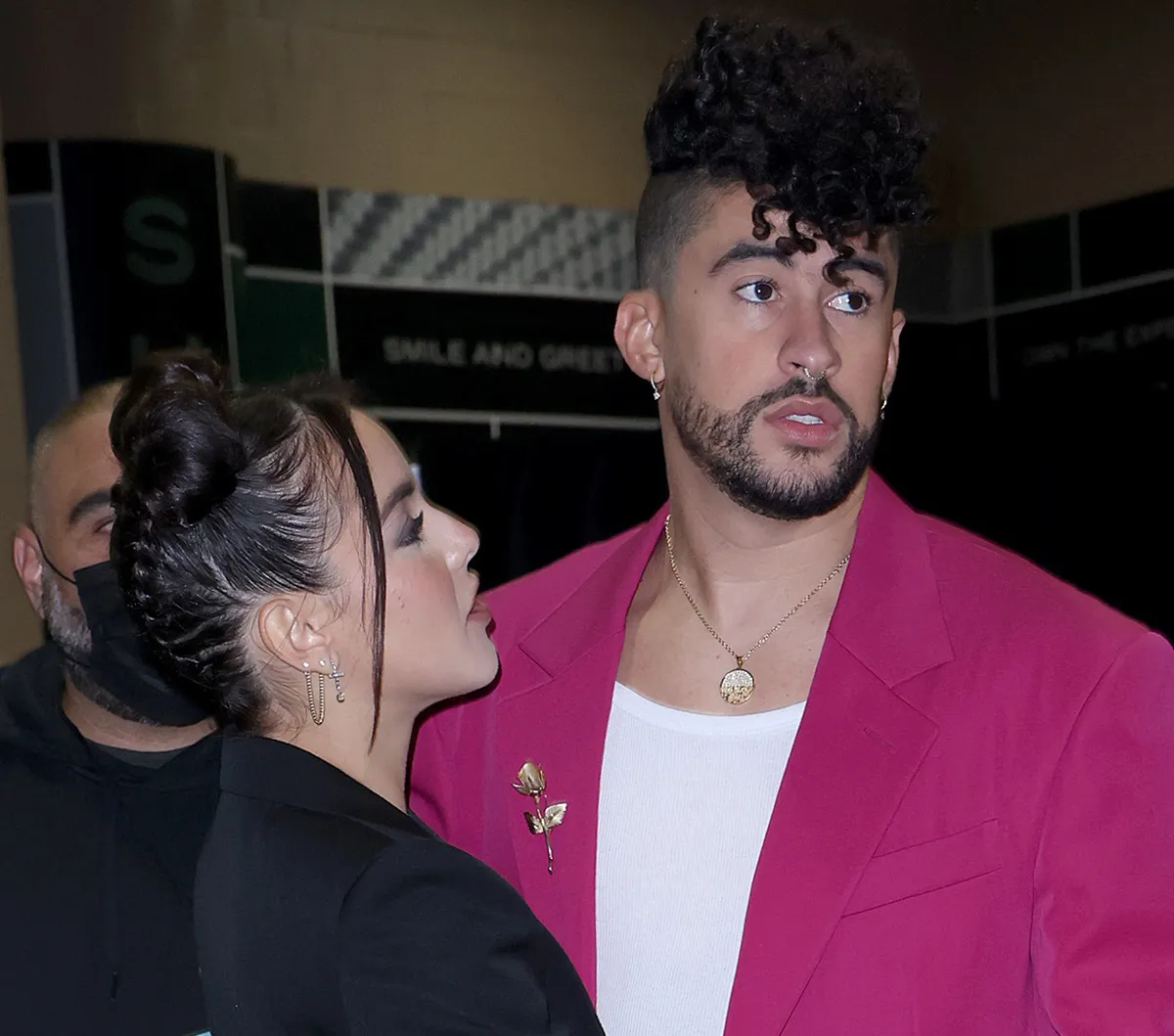
Dolly Parton Worried 1 of Her Hit Songs Would Scare Her Audience ‘to Death’
By 1977, Dolly Parton songs had long been hits on country charts. She believed she could be a bigger star, though, so she hired Sandy Gallin as her manager. While they hit it off right away, he pushed her musically, believing that she could be a success on the pop charts too. She felt terrified that her first crossover song, “Here You Come Again,” would alienate her longtime listeners.
Dolly Parton released her first crossover song in 1977
After years of establishing herself as a country artist, Parton reached out to Gallin, who had already worked with a number of stars.
“I started right in telling him that I wanted to be a star, a big star,” she wrote in her book Dolly: My Life and Other Unfinished Business, adding, “I told him that with the right help there was no end to what I could do. I knew that he managed big stars like Cher and Joan Rivers, and I gave him my best sales pitch. ‘I’m going to be a superstar, and whoever helps me will also be rich and famous,’ I said, dead serious.”
Gallin agreed that Parton had star power. He wanted to help her find her footing in the pop charts, and believed the song “Here You Come Again” would allow her to do this. Parton wasn’t as sure. She worried that putting out a pop single could turn her country audience against her.
“I resisted it, saying, ‘I don’t want to scare my audience to death,'” she wrote. “I wanted to put out ‘Two Doors Down’ first. Sandy said, ‘We’ll do it later. This is your first song. It’s going to be a giant hit. You’ve got to trust me sooner or later.’ I trusted him.”
In the end, Gallin was right.
“I am very glad. He was right about all of it,” she wrote. “‘Here You Come Again’ was a huge hit, my first million seller. I will always be indebted to Sandy for his vision as well as to Barry Mann and Cynthia Weil for such a great song. Gary Klein did a first-class job of producing the record, and the Scotti brothers did an equally top-notch job promoting it. I had a big hit.”
Dolly Parton felt vindicated when the song was a success
Parton’s fears about “Here You Come Again” were rooted in the resistance to change in Nashville. Some people told her that releasing a pop record meant she was leaving country behind. She denied this, saying that she just wanted to build a bigger audience. “Jolene,” her biggest hit up until this point, had only sold 60,000 records.
As it turned out, finding a broader audience didn’t mean her original fans turned their backs on her.
“When ‘Here You Come Again’ was a big hit with country audiences too, I felt completely vindicated,” she wrote. “Not only had I proved I was right about the arithmetic, I helped to make a whole segment of society change the way they thought about country music and country singers. Now Nashville began to respond a little differently to me. When I was nominated by the CMA as Entertainer of the Year, it was a sure sign that Nashville had finally gotten over my crossover.”
She received a Grammy for ‘Here You Come Again’
Further proof of her success came in 1979, when Parton won a Grammy for Best Country Vocal Performance on “Here You Come Again.” While this was not her first Grammy nomination — she racked up multiple by this point — it was her first win.

Since then, Parton has won another 10 Grammys, including a Lifetime Achievement Award. She has picked up 53 nominations in her career, making her the woman with the second most Grammy nominations behind Beyoncé.


